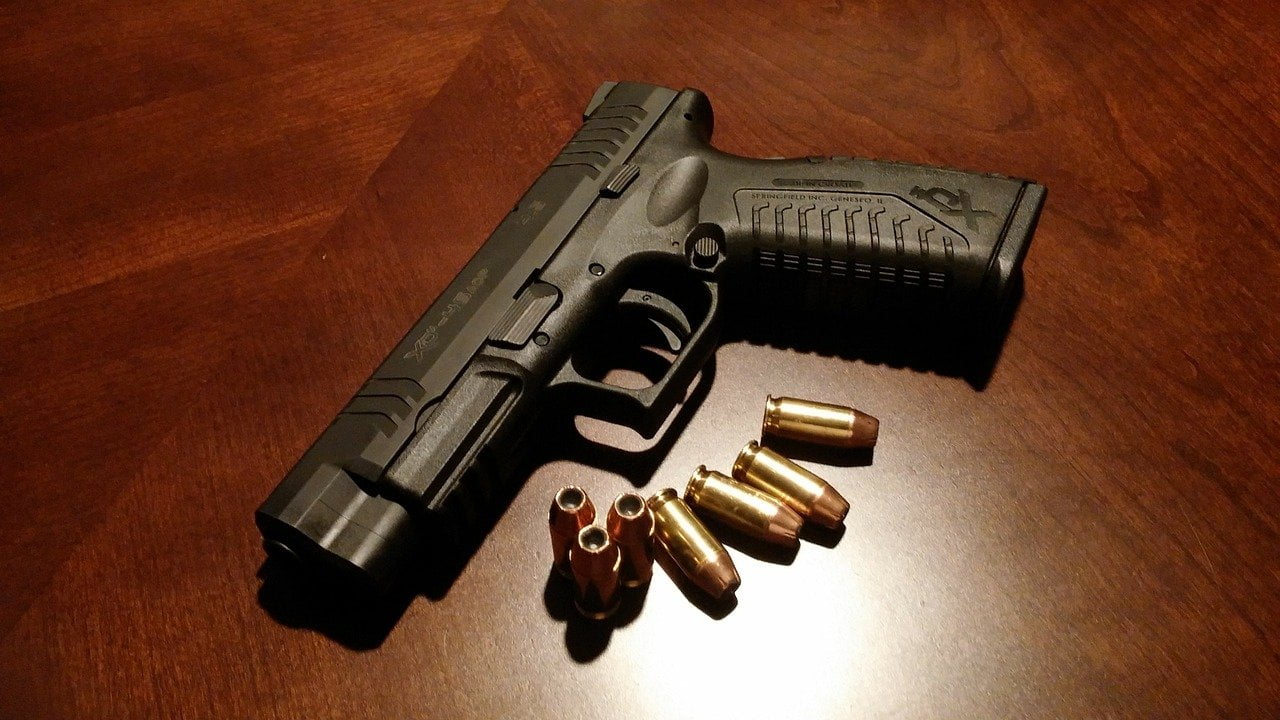Shareholder Proponents Seek Majority Support For Their Proposal To Mitigate Human Rights Harms At Smith & Wesson Annual Meeting On Monday, September 12th
Activist To Push For A Human Rights Policy
NEW YORK, NY, FRIDAY, SEPTEMBER 9TH, 2022 – On Monday, September 12th at 10:00 am ET, a group of investors will once again urge their fellow shareholders to vote in favor of a proposal requesting the development of a human rights policy at Smith & Wesson (S&W), a leading manufacturer of firearms sold to civilians.
Q2 2022 hedge fund letters, conferences and more
This will mark the third time they are presenting the proposal, with prior shareholder support growing from 36% in 2019 to 44% in 2021. This year, the proponents are hoping for a majority vote.
Since last year’s annual meeting:
- Gun violence became the leading cause of death for children in the United States in 2020, the most recent year for which Centers for Disease Control and Prevention data is available;
- Smith & Wesson’s M&P15 semiautomatic rifle, an AR-15-style firearm, was used in a highly publicized mass shooting at the Highland Park, Illinois July 4th parade;
- Similar rifles made by other manufacturers were used to kill 19 children and two teachers at Robb Elementary School in Uvalde, Texas on May 24, 2022, and 10 shoppers at a Tops grocery store in Buffalo, New York just eight days earlier;
- In response to these shootings, the House Oversight Committee (“HOC”) sent letters to gun manufacturers, including S&W, seeking information about the sale and marketing of AR-15-style rifles and similar firearms and calling them to appear at a public hearing on July 27th. The CEOs of Daniel Defense and Sturm Ruger appeared, but Smith & Wesson CEO Mark Smith “abruptly withdrew” five days before the hearing without explanation;
- On August 2, HOC issued a subpoena to S&W demanding documents related to the manufacture and sale of AR-15-style rifles, including “the revenue and profits Smith & Wesson is making from AR-15-style rifles, internal analysis and assessments related to the safety of its products and marketing practices, and internal communications involving the CEO and other top executives discussing recent mass shootings carried out with the company’s weapons.”
Adopting A Human Rights Due Diligence Process
In its exempt solicitation, the shareholders argue these developments reinforce the seriousness of the risks created by S&W’s failure to systematically assess or even track the adverse impacts of its products, especially AR-15-style rifles.
They argue that adopting a human rights due diligence process would allow S&W to monitor these risks more precisely and take actions to prevent potentially costly future impacts.
Further, a human rights due diligence process would demonstrate to stakeholders that S&W is not callous to the harms resulting from the misuse of its products, and to legislators that it is willing to collaborate in the development of solutions to mitigate any potential harms.
Said Sr. Judy Byron of the Northwest Coalition for Responsible Investment who led the filing of the proposal, “The business case for this policy is abundantly clear and the moral case even more so.
We will once again appeal to the board, management, and our fellow shareholders to support our call for S&W to confront, and not run from, the grave human rights risks it faces.”
In its statement of opposition to the proposal, management persists in putting forward two main arguments which seek to mischaracterize the proposal and mislead investors: 1) that adoption of a human rights policy would subject the company to “extra-legal liability” (financial damages beyond what is required by law), and; 2) the company’s existing policies address the requests of the proposal.
In the first case, the human rights due diligence process is not legally binding in any way, nor does it lead to adjudication of fault or damages/penalties the way litigation or a government enforcement action would.
In the second case, the company’s existing policies neither address nor acknowledge human rights; in fact, the tone of S&W’s policies and statements have been defiant and defensive.
Proponents say they remain hopeful the company will change its views and agree to authentically dialogue on ways it can contribute to reducing gun violence. In the meantime, they will once again make their case to S&W shareholders at Monday’s meeting in the hopes of a majority outcome on their proposal.
About the Interfaith Center on Corporate Responsibility (ICCR)
Celebrating its 51st year, ICCR is the pioneer coalition of shareholder advocates who view the management of their investments as a catalyst for social change.













